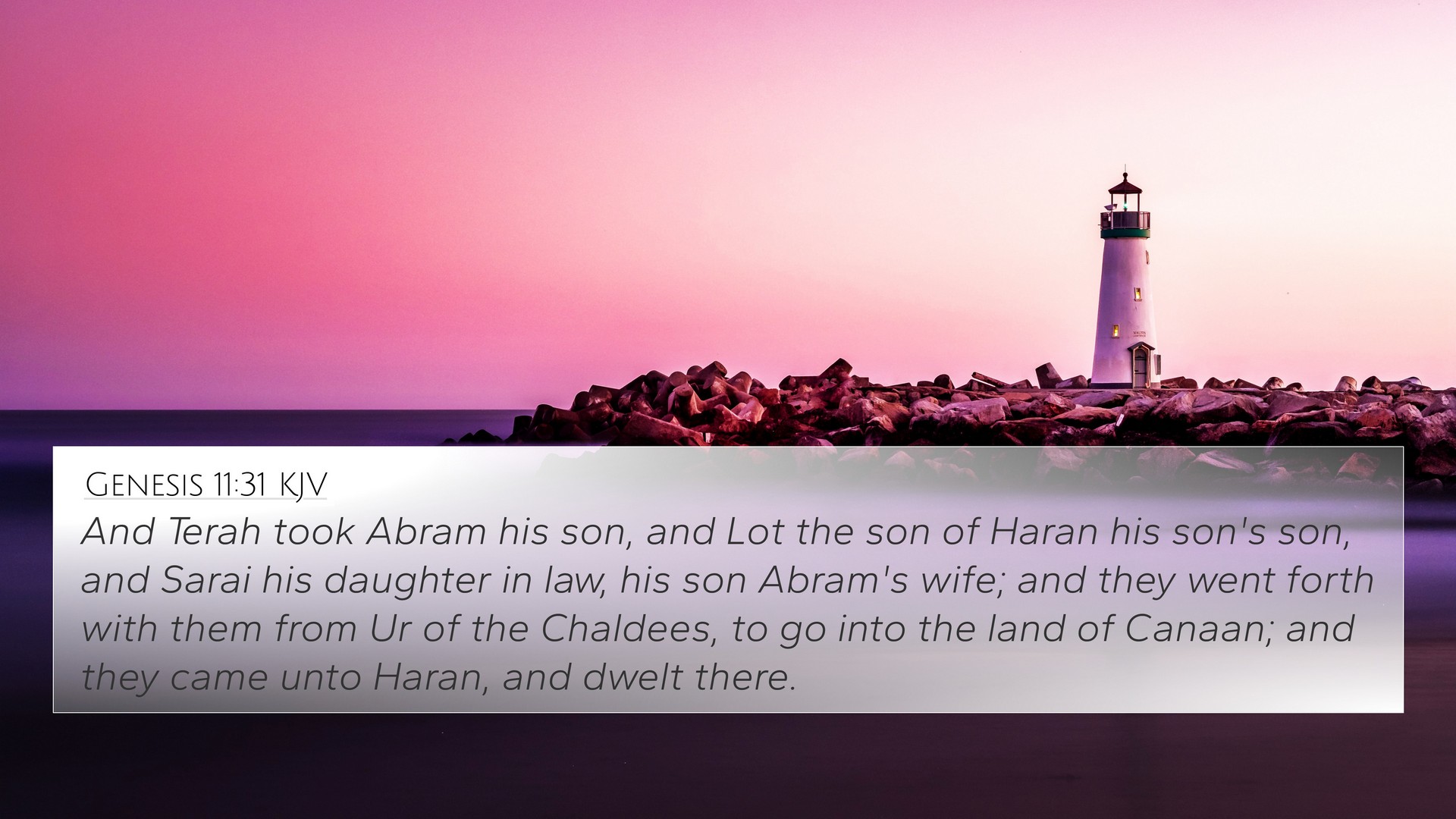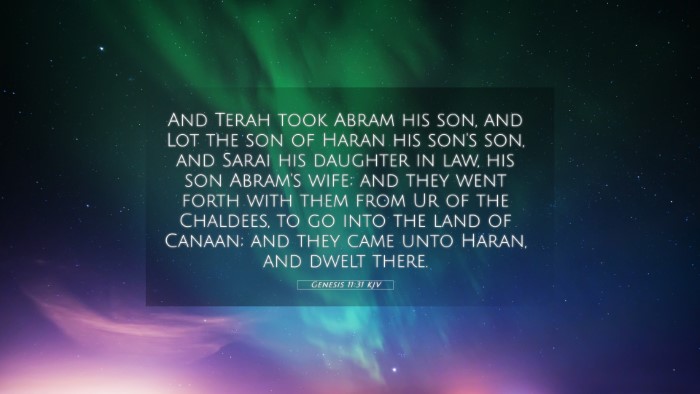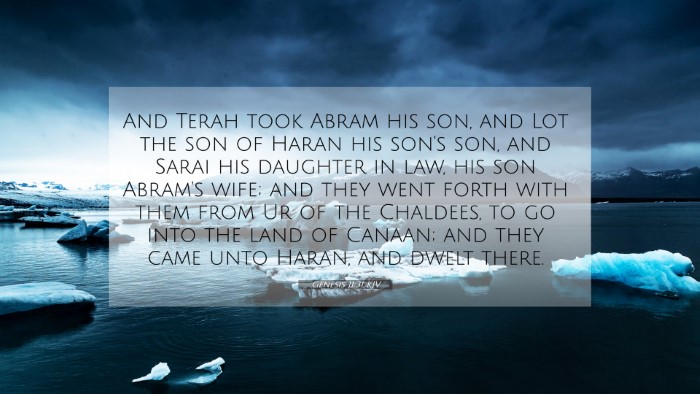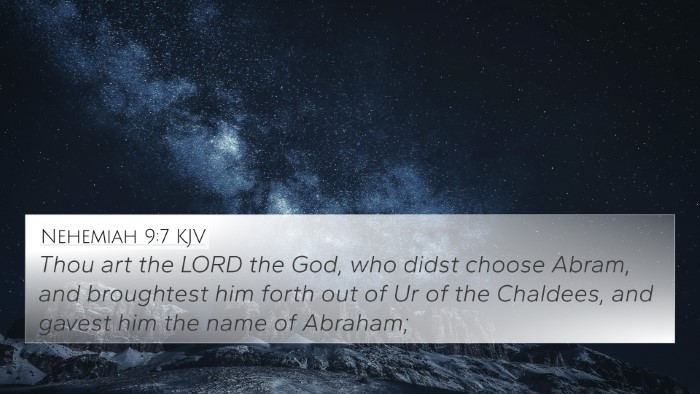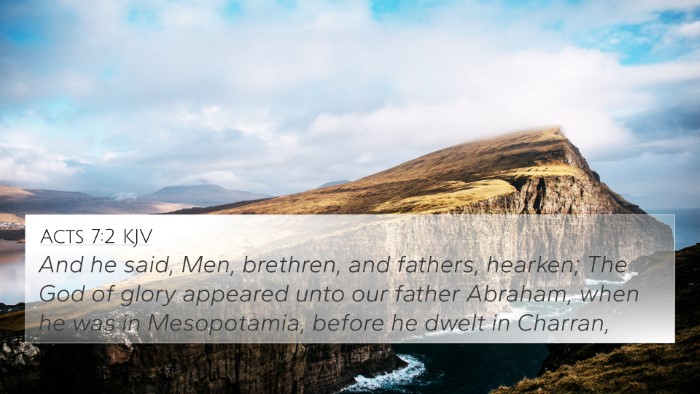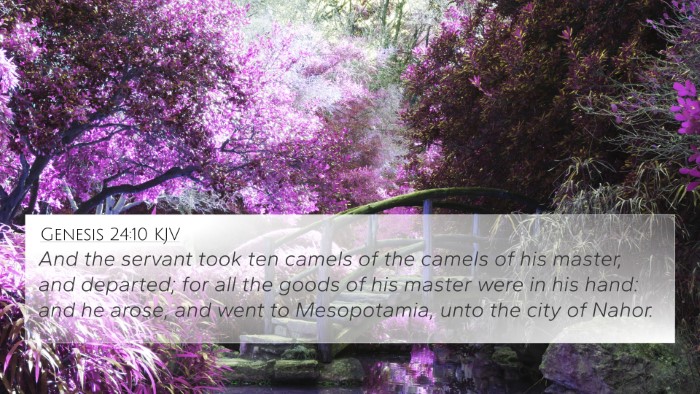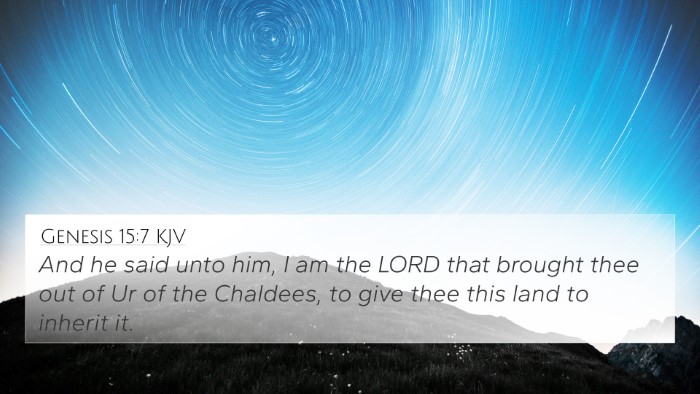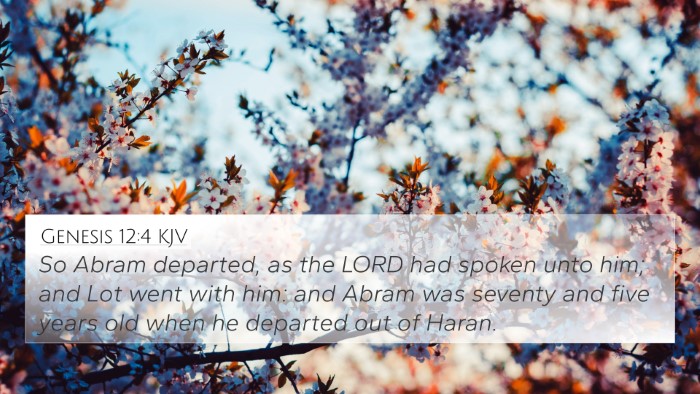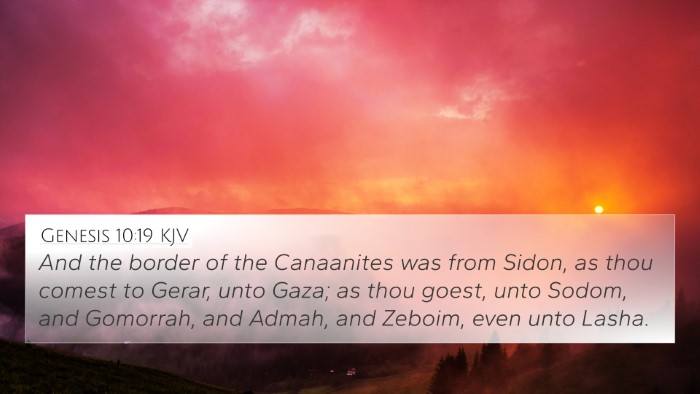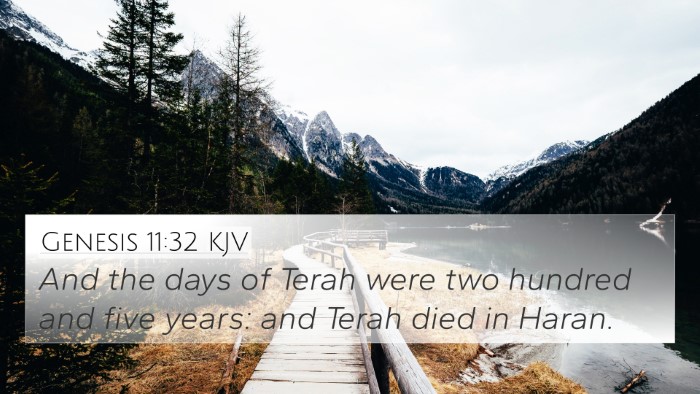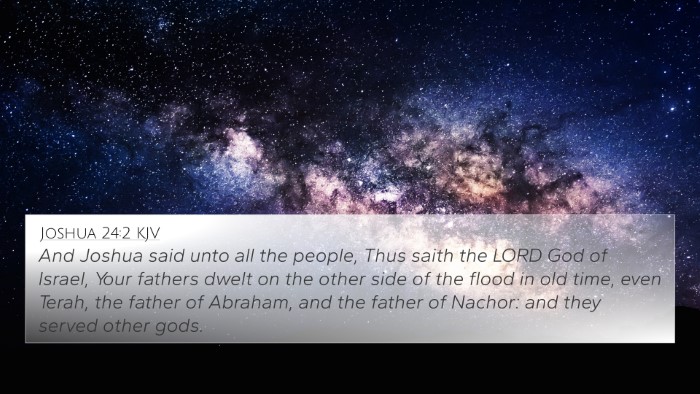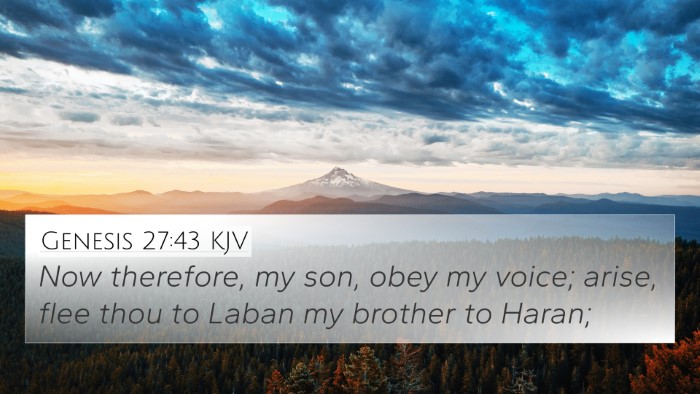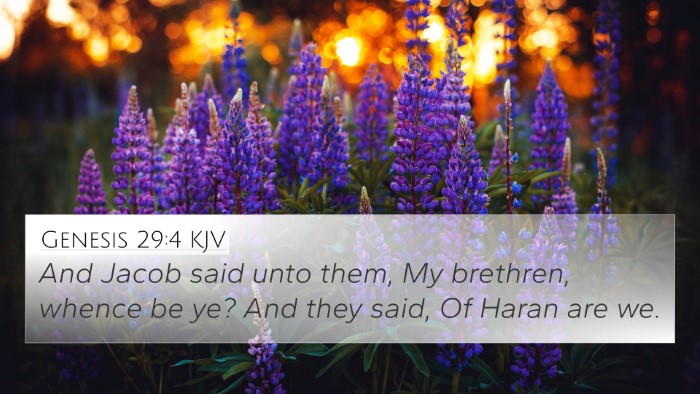Understanding Genesis 11:31
Genesis 11:31 states: "And Terah took his son Abram, and Lot the son of Haran his son’s son, and Sarai his daughter-in-law, his son Abram’s wife; and they went forth with them from Ur of the Chaldees, to go into the land of Canaan; and they came unto Haran, and dwelt there."
Summary of Bible Verse Meaning
This verse is pivotal in the biblical narrative as it marks the transition of Abram (later called Abraham) and his family from Ur of the Chaldees towards Canaan, which will later become a significant land for the Israelites. Each component of this journey is rich with theological and historical implications.
Commentary Insights
- Matthew Henry: Henry points out the significance of Terah’s role as a patriarch leading his family out of idolatrous Ur, which reflects a movement towards divine purpose. It showcases not only Abram's obedience but also highlights God’s sovereign choice through which He calls Abram to fulfill His covenant.
- Albert Barnes: Barnes emphasizes the importance of the family connection, noting that Terah’s departure represents both a physical and spiritual journey. He connects this exodus to God’s larger plan for Abram, marking the beginning of a promise that impacts future generations.
- Adam Clarke: Clarke elaborates on the location of Ur and its significance, describing it as a place of great cultural influence. He notes this transition to Haran as a necessary step, serving to prepare Abram for the ultimate call to Canaan, where he would become the father of a great nation.
Cross-References and Thematic Connections
Genesis 11:31 can be cross-referenced with several other Bible verses which amplify its themes of divine purpose, family, and the call to faith:
- Genesis 12:1-3: The call of Abram where God instructs him to leave his homeland and promises blessings.
- Acts 7:2-4: Stephen recounting the call of Abram and his move from Mesopotamia.
- Hebrews 11:8: Discusses Abram's faith in moving to an unknown land on God’s promise.
- Isaiah 51:2: Referring to Abraham as a model of faith and obedience to God’s calling.
- Romans 4:3: Highlights Abraham's faith being credited to him as righteousness.
- Joshua 24:2: A reminder of the idolatry in Terah's family background before God's revelation.
- Genesis 12:5: Details Abram's journey and the comprehensive nature of his family's movement toward Canaan.
- Genesis 15:7: God reminds Abram of his call: "I am the Lord that brought thee out of Ur of the Chaldees."
- Exodus 3:16: References God's ongoing relationship with Abraham’s descendants, emphasizing the lineage that begins here.
- Romans 9:7-8: Discusses the importance of Abraham’s lineage in the context of God’s promise to Israel.
Exploring the Connections
The connections between these verses build a rich tapestry of understanding regarding faith, obedience, and divine calling:
- Thematic Bible verse connections: This narrative showcases the theme of faith: Abram’s willingness to leave his homeland exemplifies trust in God’s promises.
- Inter-Biblical dialogue: The account of Terah and Abram reflects the transition from idolatry to a covenant community, influencing both Old and New Testament perspectives.
- Comparative Bible verse analysis: By comparing this verse with New Testament references, we see how Abram's faith is foundational to Christian belief, establishing a paradigm of faith that connects the Old Testament narratives with New Testament teachings.
Tools for Bible Cross-Referencing
Utilizing various tools for Bible cross-referencing can enhance understanding:
- Bible Concordance: A comprehensive guide for locating terms and themes throughout scriptures.
- Bible Cross-Reference Guide: Specific resources help readers find related passages easily.
- Cross-Reference Bible Study: Techniques that facilitate deeper exploration of linked verses.
- Bible Reference Resources: Access to commentaries and dictionaries that provide background and context.
Conclusion
Genesis 11:31 serves as a foundational moment in the biblical story of redemption and sets the stage for understanding the character of God’s call and covenant. The journey of Terah and Abram is not only a historical event but a spiritual metaphor that resonates throughout Scripture, encouraging believers to follow God with courage and faith.
